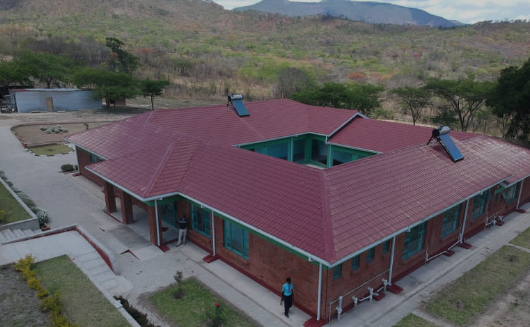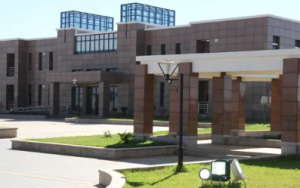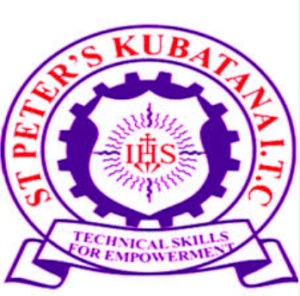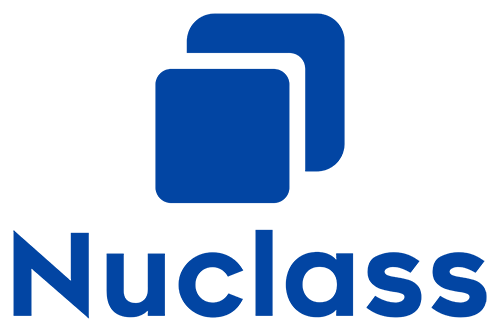The Essentials
Type of Institution: University
Fees per Semester: US$400.00 to US$1 200.00
Address: Stair Guthrie Road, P Bag 7001, Fernhill, Mutare, Zimbabwe.
Phone Number: +2632063456
Chancellor: E.D Mnangagwa
Vice Chancellor: Prof. Albert Chawanda
Number of students: 1000+
Website: https://msuas.ac.zw/
Email: pr@msuas.ac.zw
Table Of Contents
- Overview
- Contact Details
- Address
- Location
- School Fees
- Courses & Programs
- Vacancies and Entry Requirements
- Logo
- Notable Alumni
- Pros and Cons
- Author’s Review
Overview
Manicaland State University of Applied Sciences (MSUAS) is a public higher education institution located in the Manicaland Province of Zimbabwe. The university focuses on providing practical and applied education in various fields to support regional and national development.
Background
Established: MSUAS was established in 2012, with the aim of addressing the growing need for specialized and practical education in the region.
Location: The main campus is situated in Mutare, the largest city in Manicaland Province, which serves as a central hub for students from the surrounding areas.
Vision and Mission
Vision: To be a leading institution in applied sciences, known for its contribution to practical and innovative solutions in various fields.
Mission: To provide high-quality, practical, and relevant education that addresses the needs of the local and national economy through applied research, community engagement, and skill development.
Academic Focus
Specialization: MSUAS is dedicated to applied sciences and technology, with an emphasis on practical training and research. The university aims to bridge the gap between theoretical knowledge and practical application.
Research and Innovation
Research Focus: MSUAS emphasizes applied research that addresses local and regional challenges. The university supports projects related to sustainable development, environmental management, and technological innovations.
Innovation: The university encourages innovation through partnerships with industry and community organizations, aiming to develop practical solutions and technologies that benefit society.
Community Engagement
Outreach Programs: MSUAS is actively involved in community service, providing training and support in areas such as agriculture, environmental conservation, and business development.
Extension Services: The university offers extension services to local communities, including workshops, training programs, and advisory services.
Facilities
Campus Facilities: The university’s campuses are equipped with modern lecture halls, laboratories, libraries, and computing facilities to support learning and research.
Accommodation: MSUAS provides on-campus accommodation for students, with additional housing options available in Mutare.
Future Prospects
Growth and Development: MSUAS is focused on expanding its academic offerings, enhancing its research capabilities, and strengthening its community engagement initiatives. The university aims to continue growing its impact and contribution to regional and national development.
Manicaland State University of Applied Sciences Contact Details
You can contact Manicaland State University of Applied Sciences via their landline, email or you can visit their website for further contact details.
Phone Number: +2632063456
Website: https://msuas.ac.zw/
Email: pr@msuas.ac.zw
Manicaland State University of Applied Sciences Address
Stair Guthrie Road, P Bag 7001, Fernhill, Mutare, Zimbabwe.
Manicaland State University of Applied Sciences Location
Manicaland State University of Applied Sciences is situated in the historic city of Mutare in the Manicaland province of Zimbabwe.
Manicaland State University of Applied Sciences Fees
Lupane State University’s fees is currently standing at US$400.00 to US$1 200.00 per semester depending on the program you are studying and the level of degree you are studying. Please contact the institution or visit them to get the latest fees structure as it can change at any term or semester.
Manicaland State University of Applied Sciences Courses and Programs
Here is a list of courses and programs offered at Manicaland State University of Applied Sciences (MSUAS):
Undergraduate Programs
Faculty of Applied Sciences
Bachelor of Science in Environmental Science
Environmental Management
Climate Change and Adaptation
Bachelor of Science in Applied Chemistry
Analytical Chemistry
Industrial Chemistry
Bachelor of Science in Physics
General Physics
Applied Physics
Faculty of Engineering and Technology
Bachelor of Engineering in Civil Engineering
Structural Engineering
Construction Management
Bachelor of Engineering in Mechanical Engineering
Thermodynamics
Mechanical Design
Bachelor of Engineering in Electrical Engineering
Electronics
Power Systems
Faculty of Business and Social Sciences
Bachelor of Business Administration (BBA)
General Management
Marketing
Human Resource Management
Bachelor of Science in Economics
Development Economics
Applied Econometrics
Bachelor of Social Work
Community Development
Social Welfare
Faculty of Agriculture and Natural Resources
Bachelor of Science in Agriculture
Crop Science
Animal Science
Bachelor of Science in Horticulture
Fruit and Vegetable Production
Ornamental Horticulture
Bachelor of Science in Natural Resource Management
Forestry
Wildlife Management
Postgraduate Programs
Faculty of Applied Sciences
Master of Science in Environmental Management
Environmental Impact Assessment
Resource Management
Master of Science in Applied Chemistry
Advanced Analytical Techniques
Chemical Process Engineering
Faculty of Engineering and Technology
Master of Science in Civil Engineering
Structural Analysis
Geotechnical Engineering
Master of Science in Mechanical Engineering
Fluid Mechanics
Thermal Systems
Faculty of Business and Social Sciences
Master of Business Administration (MBA)
Strategic Management
Financial Management
Master of Science in Agricultural Economics
Agricultural Policy
Rural Development
Diploma Programs
Diploma in Engineering
Civil Engineering
Mechanical Engineering
Diploma in Business Management
General Management
Marketing
Diploma in Environmental Science
Environmental Conservation
Pollution Control
Diploma in Agriculture
Crop Production
Livestock Management
Certificate Programs
Certificate in Applied Sciences
Basic Environmental Science
Fundamentals of Chemistry
Certificate in Business Management
Introduction to Business
Financial Accounting
Certificate in Horticulture
Basics of Horticulture
Plant Propagation
These programs reflect MSUAS’s focus on practical and applied education in sciences, engineering, business, and agriculture, aiming to address regional and national development needs. For the most up-to-date information, it’s best to consult the university’s official website or contact their admissions office.
Manicaland State University of Applied Sciences Vacancies and Entry Requirements
Entry Requirements
Undergraduate Programs
Bachelor of Science in Environmental Science
Ordinary Level: At least 5 O-Level passes including English Language, Mathematics, and a Science subject.
Advanced Level: At least 2 A-Level passes in Science subjects such as Biology, Chemistry, or Geography.
Bachelor of Engineering in Civil Engineering
Ordinary Level: At least 5 O-Level passes including English Language, Mathematics, and Science subjects.
Advanced Level: At least 2 A-Level passes in Mathematics and Physics. A pass in Additional Mathematics may be advantageous.
Bachelor of Business Administration (BBA)
Ordinary Level: At least 5 O-Level passes including English Language and Mathematics.
Advanced Level: At least 2 A-Level passes in relevant subjects such as Business Studies, Economics, or Mathematics.
Bachelor of Social Work
Ordinary Level: At least 5 O-Level passes including English Language and Mathematics.
Advanced Level: At least 2 A-Level passes in relevant subjects such as Sociology, Psychology, or other social sciences.
Bachelor of Science in Agriculture
Ordinary Level: At least 5 O-Level passes including English Language, Mathematics, and Science subjects.
Advanced Level: At least 2 A-Level passes in relevant science subjects such as Biology or Agriculture.
Postgraduate Programs
Master of Science in Environmental Management
Bachelor’s Degree: An undergraduate degree in Environmental Science, Natural Resources, or a related field.
Experience: Relevant work or research experience in environmental management may be beneficial.
Master of Science in Civil Engineering
Bachelor’s Degree: A degree in Civil Engineering or a related field.
Experience: Relevant work experience in engineering projects or research may be preferred.
Master of Business Administration (MBA)
Bachelor’s Degree: An undergraduate degree in any field.
Experience: Relevant work experience, particularly in management or leadership roles, is often required.
Diploma and Certificate Programs
Diploma in Engineering
Ordinary Level: At least 5 O-Level passes including English Language, Mathematics, and Science subjects.
Experience: Relevant experience in engineering or technical fields may be advantageous.
Diploma in Business Management
Ordinary Level: At least 5 O-Level passes including English Language and Mathematics.
Certificate in Applied Sciences
Ordinary Level: At least 5 O-Level passes including English Language and a Science subject.
Certificate in Business Management
Ordinary Level: At least 5 O-Level passes including English Language and Mathematics.
Application Process
Applications are typically submitted online through the university’s admissions portal. Required documents include academic transcripts, identification, and certificates. Specific deadlines and additional requirements can be found on the university’s official website.
For the most accurate and current information, prospective students and applicants should consult the Manicaland State University of Applied Sciences’ official website or contact their admissions office directly.
Manicaland State University of Applied Sciences Logo
Below is the logo of Manicaland State University of Applied Sciences with excellent quality and it is available to download in PNG (transparent file) JPEG and PDF.
Manicaland State University logo
Manicaland State University of Applied Sciences Pros and Cons
Pros
Specialized Focus: MSUAS specializes in applied sciences and technology, providing targeted education and training that meets industry and regional needs.
Practical Experience: The university emphasizes hands-on training and practical experience, with facilities such as research farms, laboratories, and engineering workshops that prepare students for real-world challenges.
Community Engagement: MSUAS is actively involved in community service and extension programs, offering support and resources to local communities and industries.
Research Opportunities: The university supports applied research that addresses local and regional challenges, contributing to advancements in agriculture, technology, and environmental management.
Growing Infrastructure: As a relatively new institution, MSUAS is expanding its facilities and academic programs, which can lead to modern and updated learning environments.
Regional Impact: Located in Mutare, MSUAS provides educational opportunities in a key regional center, contributing to local economic and social development.
Collaborations and Partnerships: The university collaborates with local and international institutions, enhancing its research capabilities and providing students with broader learning opportunities.
Cons
Limited Resources: Being a newer institution, MSUAS may face constraints in financial resources and infrastructure compared to older, more established universities.
Perception Issues: The university might face challenges related to its perceived prestige and reputation, which could impact its attractiveness to prospective students and partners.
Program Scope: The range of programs offered may be more limited compared to larger institutions with a broader academic focus, potentially limiting students’ options.
Geographical Location: The university’s location in Mutare might limit its accessibility for students from other regions, which could affect enrollment and diversity.
Funding and Scholarships: Financial aid and scholarship opportunities might be limited, which can impact students from disadvantaged backgrounds seeking to pursue their studies.
Developmental Challenges: As a growing institution, MSUAS may encounter challenges related to scaling its programs, expanding its research activities, and enhancing its overall academic environment.
Author's Review
Manicaland State University of Applied Sciences (MSUAS) plays a vital role in advancing applied education and research in Zimbabwe, particularly in the fields of agricultural sciences, engineering, and technology.
Its commitment to providing practical, hands-on training and addressing regional and national development needs positions it as an important institution in the educational landscape.
The university’s strengths, such as its specialized focus, practical experience, and community engagement, underscore its contribution to local and regional development.
By offering programs tailored to the needs of the agricultural and technological sectors, MSUAS helps equip students with the skills and knowledge necessary to tackle real-world challenges and drive innovation.
However, MSUAS also faces challenges inherent to newer institutions, including limited resources, perceptions of prestige, and constraints on program scope. These factors can impact its growth and the breadth of opportunities available to students.
In summary, Manicaland State University of Applied Sciences is making significant strides in applied education and research, with a clear focus on practical and community-oriented solutions. While it continues to develop and expand its offerings, addressing its challenges and leveraging its strengths will be key to enhancing its impact and reputation in the field of higher education.





